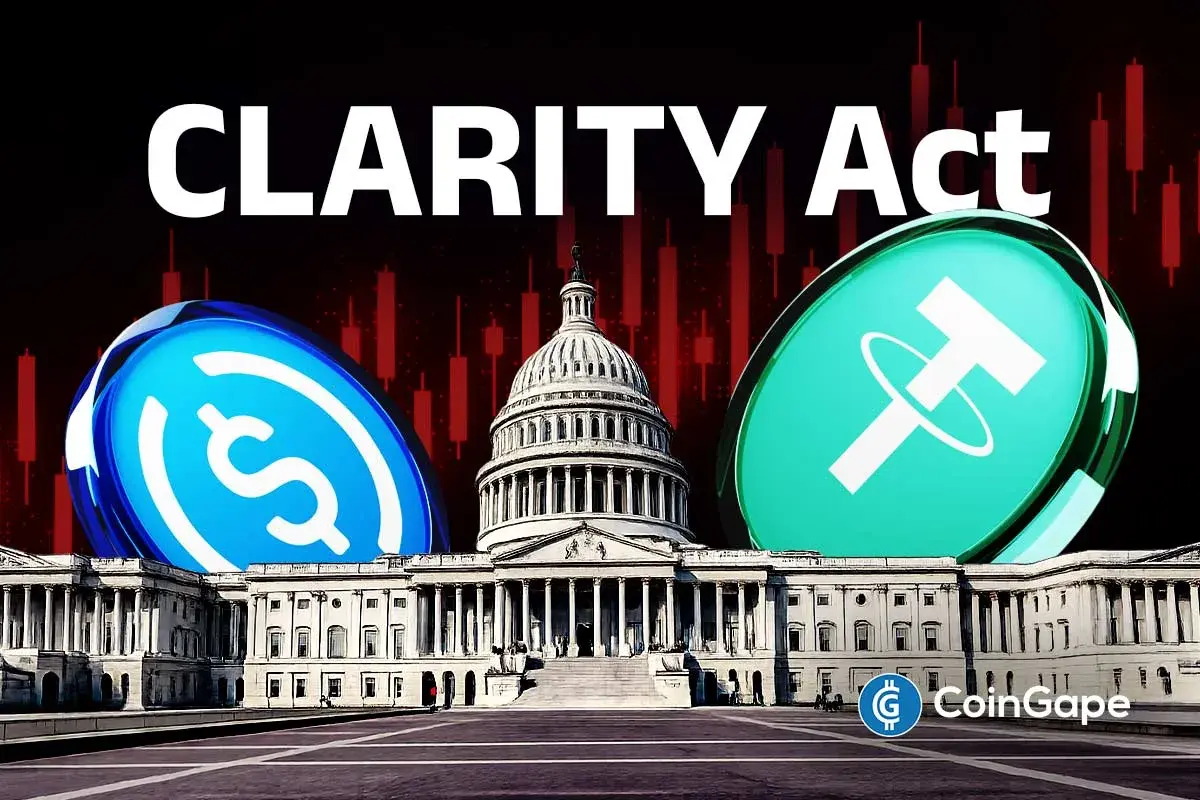Coin Center Asserts Stablecoin Bill Threatens Free Speech Rights

Highlights
- Coin Center opposes the Lummis-Gillibrand Payment Stablecoin Act, labeling it a potential infringement on constitutional rights.
- The proposed bill seeks to regulate the payment of stablecoins and ban algorithmic stablecoins, which the Coin Center claims violate the First Amendment.
- Jerry Brito, Director of Coin Center, sees regulatory efforts as a chance to nurture innovation within a clearly defined legislative framework.
The digital currency advocacy group Coin Center has strongly opposed the Lummis-Gillibrand Payment Stablecoin Act, saying it ‘would impermissibly infringe upon constitutional rights.’ The bipartisan bill, which has the support of Senators Kirsten Gillibrand and Cynthia Lummis, is meant to regulate the payment of stablecoins. The lobbying group Coin Center claims the bill’s prohibition on algorithmic stablecoins would be a violation of the First Amendment by targeting the code comprising digital assets.
The Director of Coin Center, Jerry Brito, welcomed the decision to regulate stablecoins. He noted the fact that there are opportunities for the development of innovation within a clear legislative framework. The bill requires the issuance of a dollar stablecoin only by issuaries adopted in the United States. Coin Center interprets the bill as an opportunity to register with the SEC for issuers of stablecoins, rather than as a ban.
Coin Center Critiques Senate’s Stablecoin Regulation Approach
Recent legislative attempts have sought to establish precise standards for the workability of stablecoins. This decision is based on TerraUSD‘s failure to maintain a fixed exchange rate with the dollar. This event triggered a significant downturn in the cryptocurrency market in 2022. In addition, it led to the declaration of bankruptcies and more investigations from a U.S. regulatory body and even local law enforcement. Coin Center clarified how the Senate reform proposal differed from another submitted in the House.
This Stablecoins Act, which the House is voting on, presents another approach. A moratorium for algorithmic stablecoins for a two-year term should be considered instead of a blanket ban. Coin Center believes this approach to be a more attainable goal and reflects the desire for progress. This move is opposite to the more restrictive Senate proposals, which shows that crypto oversight is still under discussion here.
Uncertainty Surrounds House Stablecoin Act Vote
Coin Center has proposed flexible registration for crypto with the goal of ensuring development while maintaining compliance with rules. According to that view, the pre-existing securities regulatory framework is sufficient to deal with the risks that might arise from stablecoins. Coin Center advocates for incorporating new products under existing regulations. This way, the innovation will prosper while consumer protection and market integrity remain intact.
Senator Sherrod Brown, Chair of the Senate Banking Committee, has also expressed interest in advancing a stablecoin bill. He stated that addressing his concerns would be crucial for moving forward. However, there are currently no plans to schedule the House’s Clarity for Payment Stablecoins Act for a floor vote. This uncertainty adds to the complexity of establishing a coherent regulatory environment for stablecoins in the U.S.
Read Also: Grayscale Bitcoin ETF Faces $1.6B Outflows as Bitcoin Halving Nears
Play 10,000+ Casino Games at BC Game with Ease
- Instant Deposits And Withdrawals
- Crypto Casino And Sports Betting
- Exclusive Bonuses And Rewards

- Ripple Bets On AI Boom With Strategic Investment In AI Agent Infrastructure Startup
- Prediction Market News: Kalshi Fines MrBeast Associate Over Insider Trading Amid State Crackdown
- CLARITY Act: Banks, Crypto Yet To Agree On New Crypto Bill Draft As March 1 Deadline Looms
- Michael Saylor Predicts $50T From Bonds Could Flow Into Bitcoin Ecosystem as Digital Credit Evolves
- Bitcoin Treasury Firm GD Culture Authorizes Sale of 7,500 BTC as Expert Warns Of More ‘Pain’
- Dogecoin, Cardano, and Chainlink Price Prediction As Crypto Market Rebounds
- Will Solana Price Rally to $100 If Bitcoin Reclaims $72K?
- XRP Price Eye $2 Rebound as On-Chain Data Signals Massive Whale Accumulation
- Ethereum Price Reclaims $2K- New Rally Ahead or a Temporary Bounce?
- COIN Stock Price Prediction as Wall Street Pros Forecast a 62% Surge
- Cardano Price Signals Rebound as Whales Accumulate 819M ADA

 Buy Presale
Buy Presale

















